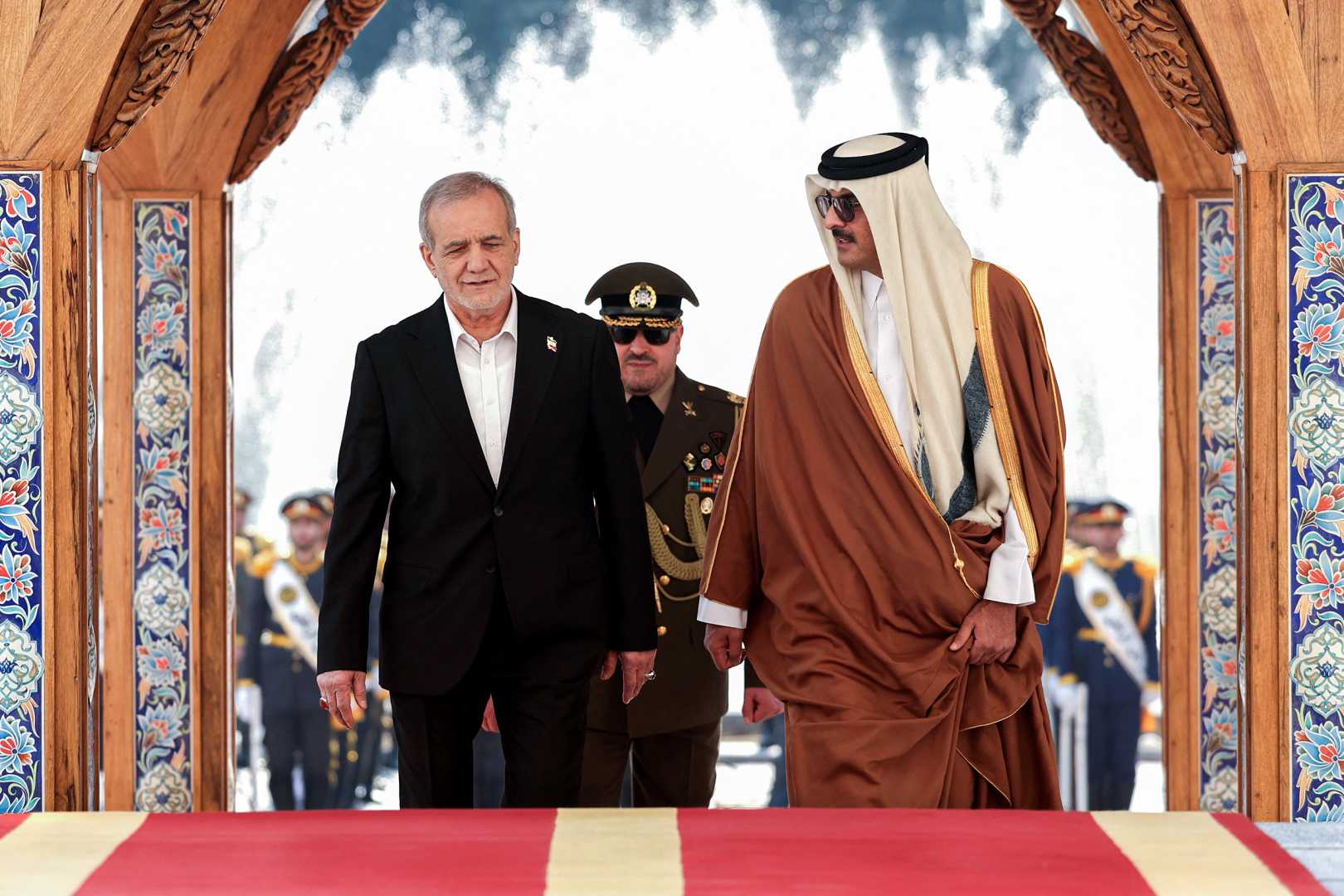News
Qatar Hosts Talks to De-escalate Israel-Iran Conflict Amid Regional Tensions

Doha, Qatar – Sheikh Tamim bin Hamad Al Thani, the Emir of Qatar, welcomed Sheikh Mohamed bin Zayed Al Nahyan, President of the United Arab Emirates, on December 5, 2023, ahead of the 44th session of the Supreme Council of the Gulf Cooperation Council.
As tensions between Israel and Iran escalate, Gulf Arab states and Jordan are intensifying their diplomatic efforts to avert a wider conflict. Qatar and Oman are set to host crucial talks this week involving U.S. envoy Steve Witkoff and the Iranian foreign minister aimed at securing a ceasefire and advancing nuclear negotiations.
Bader al-Saif, an assistant professor at Kuwait University, emphasized the precarious situation facing Gulf states. “The war is our worst nightmare come into fruition,” he said, pointing out that these nations lie directly across the Persian Gulf from Iran.
Despite ongoing competition for regional influence, Arab states are united in their desire to prevent the collapse of the Iranian regime. Led by Saudi Arabia and the UAE, they are urging U.S. President Donald Trump to pursue a diplomatic solution instead of getting involved in the military conflict.
<p“A peaceful and moderate Middle East driven by business is what we desire,” said a Gulf diplomat who requested anonymity. “If the war continues, it will eliminate all the progress we've made toward regional stability.”
On June 17, Saudi Crown Prince Mohammed bin Salman condemned Israeli military actions affecting Iranian sovereignty in a call with Iranian President Masoud Pezeshkian. The ongoing tension underscores the need for cooperative dialogue.
Qatar, Saudi Arabia, and Oman are acting as intermediaries, communicating messages between Tehran and Washington in pursuit of a ceasefire. Observers suggest that personal ties between Crown Prince Mohammed bin Salman and President Trump could be instrumental in de-escalation efforts.
Iran’s recent threats to U.S. military bases in the Gulf further complicate the situation. Iranian Defense Minister Aziz Nasirzadeh warned that if a conflict is forced upon Iran, U.S. bases are within reach and would be targeted.
Military dynamics remain tense, with Jordan actively defending its airspace against Iranian missiles. Government spokesperson Mohammed al-Momani affirmed Jordan’s commitment to protecting its sovereignty, pledging to counter any aerial threats.
The potential for economic fallout looms as the conflict disrupts regional stability and compromises investments. Travel restrictions and cancellations due to ongoing military tensions threaten the fragile tourism industry in Jordan.
“We don’t need war, it will scare away investors,” noted Mr. Saif. “We strive for ambitious growth both domestically and internationally.”
As negotiations continue, the region remains on high alert, with the hope that diplomacy can restore peace and prevent further escalation.












